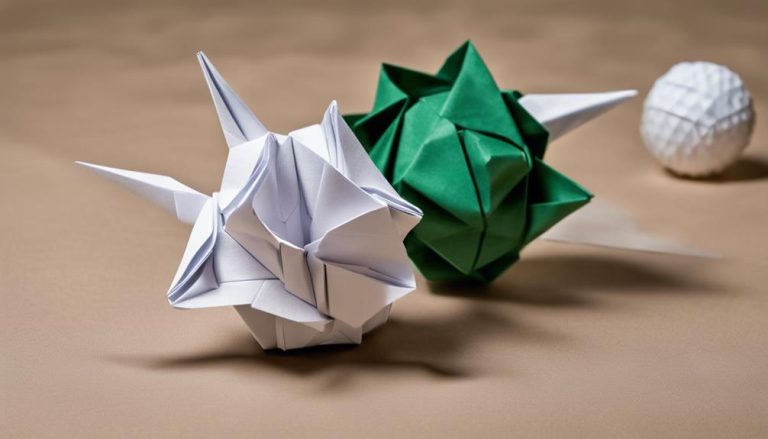General Rules of Futsal
Explore the general rules of futsal! Field size and markings guarantee fair play. Positioning and strategies are crucial for success. Quick movements can catch opponents off guard. Knowing the dimensions creates scoring chances. Utilize marked areas for strong defense. Matches are 20 mins per half with a halftime break. Injuries and stoppage time have procedures. Watch out for sudden death in knockout rounds. Efficient time management is essential. Keep reading to discover more about this thrilling game!
Field Size and Markings
When establishing a game of futsal, making sure the right field size and markings are in place is vital for an enjoyable and fair match. Player positioning and strategies play an important role in the success of a team. Promoting fluid movement and quick shifts can catch opponents off guard. By understanding the field dimensions and utilizing the marked areas effectively, players can create scoring opportunities and defend more efficiently.
Communication and teamwork are fundamental components in futsal. Clear and continual communication on the field ensures that players are aware of their surroundings, potential threats, and available passing options. Teams that work together seamlessly can exploit weaknesses in the opponent's defense and cover gaps in their own.
Effective player positioning, combined with strategic movements and coordinated efforts, can lead to successful plays. When players communicate effectively and work together towards a common goal, the team becomes a cohesive unit capable of overcoming challenges and achieving victory.
Team Composition and Substitutions
Team composition and substitutions play an essential role in the dynamic and strategic nature of futsal matches. Understanding substitution strategy is important in maintaining team dynamics and adapting to the fast pace of the game. Player roles and substitution patterns are key factors that can influence the outcome of a match.
In futsal, teams are allowed to make unlimited substitutions, typically made while the ball is out of play. Strategic substitutions can provide players with rest, inject fresh energy into the game, or adjust tactics based on the current game situation. It's essential for teams to have a clear plan regarding when and how to rotate players to optimize performance.
Player roles also come into play during substitutions. Coaches need to take into account the strengths and weaknesses of each player when deciding who to substitute and when. Substitution patterns can vary depending on the team's strategy, the scoreline, or the opponents' tactics. Being able to adapt and make effective substitutions can give a team a competitive edge and impact the flow of the game significantly.
Duration of Matches
When it comes to the duration of Futsal matches, understanding the match time limits, halftime break duration, and overtime rules is essential. These elements play a significant role in the flow and outcome of the game. So, let's break down each of these points to give you a thorough understanding of how time functions within the game of Futsal.
Match Time Limits
To understand the duration of matches in futsal, it's important to grasp the specific time limits that govern each game. In futsal, the match is typically divided into two halves of 20 minutes each, with a 10-minute halftime break in between. Here are some key points to keep in mind:
- Injury timeout procedures: Quick and efficient handling of injuries is essential to keep the game flowing smoothly.
- Match delays: Any interruptions during the game need to be managed promptly to make certain the match finishes on time.
- Stoppage time rules: Additional time may be added to compensate for interruptions during the match.
- Sudden death: In knockout stages, a sudden death period may be played if the match ends in a draw.
- Time management: Both teams need to be aware of the time remaining to strategize effectively and make the most of every minute on the court.
Understanding these time limits will help you appreciate the pace and intensity of futsal matches.
Halftime Break Duration
As you consider the rhythm and structure of futsal matches, the halftime break serves as a pivotal moment that impacts the pace and strategy for both teams. This break is not just about resting; it's a pivotal time for player hydration and discussing strategies. Team communication and motivation play a significant role during this break, setting the tone for the second half. Below is a table highlighting the importance of the halftime break:
| Aspects | Player Hydration, Strategies |
|---|---|
| Significance | Ensuring players are hydrated and discussing tactics for the remainder of the game. |
| Impact | Improved performance, better decision-making. |
| Recommendation | Encourage players to hydrate, focus on key strategies. |
Make the most of this break to empower your team for the upcoming half!
Overtime Rules
Overtime Rules: Duration of Matches
Enhance your comprehension of futsal's overtime rules by exploring the dynamic duration adjustments that heighten the match's competitive edge. In futsal, when a match ends in a tie during regular time, overtime comes into play to determine the winner. Here are some key points to ponder regarding overtime rules:
- Double Overtime Rules: Be prepared for the possibility of an extended period of play if the initial overtime doesn't break the tie.
- Sudden Death Overtime: The tension rises as the next goal scored in overtime instantly ends the match.
- Heart-pounding Moments: Experience the adrenaline rush as teams battle it out for victory.
- Nail-Biting Suspense: Feel the anticipation build as each moment in overtime could decide the outcome.
- Unpredictable Endings: Witness the excitement of sudden death overtime where anything can happen.
Ball Specifications and Equipment
When selecting a futsal ball, it is essential to take into consideration the specific requirements established by the sport's governing bodies to ensure peak performance during play. The ball should be inflated to the recommended pressure, typically between 400-600g/cm², to guarantee it bounces correctly on the hard court surface. Regarding weight, futsal balls usually weigh between 400-440 grams, lighter than traditional soccer balls, assisting in quick dribbling and precise passing.
Player attire and footwear are also vital aspects to take into account. Choose comfortable, breathable clothing that permits ease of movement. Futsal shoes with flat, non-marking rubber soles are necessary to provide the traction required on the indoor court while also safeguarding players from injuries.
Scoring and Offside Rules
To fully grasp the dynamics of scoring and offside rules in futsal, understanding how goals are achieved and potential infringements are managed is essential for players and officials alike. In futsal, scoring a goal is a moment of pure joy and accomplishment, but it is vital to remember the etiquettes that come with it. Here are some key points to ponder:
- Goal celebration etiquette: While celebrating a goal is a thrilling experience, it is important to do so respectfully and without excessive provocation towards the opposing team.
- Video assistant referee: The introduction of technology in futsal has helped in ensuring fair play by allowing referees to review critical moments to make accurate decisions.
- Fair play, sportsmanship guidelines: Upholding fair play and displaying good sportsmanship is fundamental in futsal, fostering a positive environment for all involved.
- Respecting offside rules: Understanding and abiding by offside rules is essential to maintain the integrity of the game.
- Embracing the spirit of the game: Appreciating the camaraderie and competitiveness of futsal enhances the overall experience for everyone on the court.
Fouls and Misconduct
Alright, let's talk about fouls and misconduct in futsal. Understanding the types of fouls, the punishments for misconduct, and the vital role of referees are essential components in grasping the dynamics of the game. By knowing these key points, you'll be better equipped to navigate the rules and play futsal with confidence.
Types of Fouls
Understanding the types of fouls in futsal is essential for players to maintain fair play and avoid penalties during the game. In the heat of the match, emotions can run high, leading to actions that may result in penalties. Here are five types of fouls in futsal that can impact the flow of the game:
- Penalty kicks: Missing a penalty kick can be frustrating for your team.
- Handballs: Accidental handballs can lead to heated debates on the court.
- Dangerous tackles: Reckless tackles risk injuring fellow players.
- Simulation: Faking a foul can lead to loss of integrity.
- Verbal abuse: Harsh words can create a toxic environment on the field.
Punishments for Misconduct
Exploring the domain of futsal misconduct, especially fouls and misconduct, reveals a structured system of punishments designed to uphold fair play and sportsmanship on the court. In futsal, disciplinary actions are implemented to address player behavior that violates the rules of the game. When a player commits a foul or displays misconduct, various penalties may be enforced by the referees. These penalties can range from a simple free-kick for less severe infringements to more severe consequences such as yellow or red cards for serious misconduct. Yellow cards serve as a warning, while red cards result in the player being sent off the court, leading to their team playing with a numerical disadvantage. Understanding these punishments is essential for players to maintain a respectful and fair environment during futsal matches.
Referees Role
When officiating a futsal match, referees play an important role in enforcing rules related to fouls and misconduct on the court. Referee communication is vital in maintaining a fair and safe playing environment. Here are some key points to ponder:
- Critical Enforcement: Referees must apply the rules consistently to guarantee fairness.
- Transparent Communication: Effective communication with players helps prevent misunderstandings and conflicts.
- Swift Intervention: Referees need to address misconduct promptly to retain control of the game.
- Just Decision-Making: Impartial judgments are essential to uphold the integrity of the match.
- Player Respect: Mutual respect between players and referees fosters a positive playing atmosphere.
Goalkeeper Restrictions
Goalkeepers in futsal are subject to specific restrictions that differentiate their role from that of outfield players. Unlike outfield players, goalkeepers have limitations on where they can touch the ball. They are not allowed to touch the ball with their feet or any part of their body beyond the halfway line, restricting their involvement in outfield play. This rule encourages goalkeepers to focus on their primary responsibilities of shot stopping and organizing the defense.
In terms of positioning, futsal goalkeepers must constantly adjust their placement to effectively cover the goal while adhering to the restrictions on ball contact outside their area. Quick reflexes and agility are essential for shot stopping in the fast-paced futsal environment. Goalkeepers often employ techniques like the spread save, where they widen their body to block shots, or the dive and smother to deny scoring opportunities.
Understanding these restrictions and mastering shot stopping techniques are vital for futsal goalkeepers to excel in their unique role on the pitch. By honing these skills, goalkeepers can effectively contribute to their team's success in the game.
Tiebreakers and Penalty Shootouts
Shifting the focus from goalkeeper restrictions, the intensity of a futsal match can lead to tiebreakers and penalty shootouts, adding an additional layer of excitement and pressure to the game. In these pressure situations, teams must strategize effectively to come out on top. Here are some key points to take into account:
- Maintain Composure: It's vital to stay calm and focused during penalty shootouts to make the right decisions.
- Study Your Opponent: Understanding the tendencies and weaknesses of the opposing team can give you an advantage in shootout strategies.
- Quick Decision Making: In tiebreakers, there's no time for hesitation; prompt and decisive actions are essential.
- Psychological Warfare: Mind games can play a significant role in penalty shootouts, so be ready to handle the mental aspect.
- Practice, Practice, Practice: Repetition of shootouts in training can help players get accustomed to the pressure and improve their performance when it matters most.
Frequently Asked Questions
Can Players Wear Jewelry or Accessories During a Futsal Match?
Yes, you can wear jewelry or accessories during a futsal match, but for health safety reasons, it's best to keep it minimal to avoid injuries. While they may offer performance benefits, be mindful of cultural significance and personal style.
Are There Any Restrictions on the Types of Shoes Players Can Wear During a Futsal Game?
When playing futsal, you should wear indoor soccer shoes. These provide grip on the court, support for quick movements, and help prevent injuries. While player preferences vary, following footwear regulations is important for safety.
How Often Are Futsal Balls Typically Replaced During a Match?
During a futsal match, balls are typically replaced based on wear and tear. Proper ball maintenance is essential, ensuring equipment standards are met. Ball handling and match interruptions can prompt the need for a new ball.
Are There Any Specific Rules Regarding Player Celebrations After Scoring a Goal in Futsal?
When you score in futsal, keep celebrations respectful. Etiquette matters. Different cultures have unique ways to celebrate goals. Embrace diversity in goal celebrations; it adds color and excitement to the game.
Can Teams Request a Video Review of a Referee's Decision During a Futsal Match?
Curious if video review requests impact the game? Teams cannot challenge a referee's decision during a futsal match. Trust in the refs, stay focused, and play your best game without the need for reviews.






